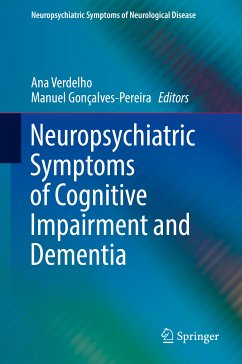
Psychobiology of Behaviour (eBook, PDF)
Versandkostenfrei!
Sofort per Download lieferbar
68,95 €
inkl. MwSt.
Weitere Ausgaben:

PAYBACK Punkte
34 °P sammeln!
The book provides a comprehensive reference on the neurobiological understanding of behaviour, how behaviour is regulated by the brain, and how such behaviours in turn influence the brain. The work offers an introduction to neural systems and genetics/epigenetics, followed by detailed study of a wide range of behaviours - temperament and personality, instincts and drives, memory and cognitive function, sex and sexual differentiation, ethology and evolutionary biology, aging, drug abuse and other problematic behaviors, psychophysiology and ultimately the links to biological psychiatry and psych...
The book provides a comprehensive reference on the neurobiological understanding of behaviour, how behaviour is regulated by the brain, and how such behaviours in turn influence the brain.
The work offers an introduction to neural systems and genetics/epigenetics, followed by detailed study of a wide range of behaviours - temperament and personality, instincts and drives, memory and cognitive function, sex and sexual differentiation, ethology and evolutionary biology, aging, drug abuse and other problematic behaviors, psychophysiology and ultimately the links to biological psychiatry and psychopharmacology. Research findings on the neural basis of social behaviour are integrated across different levels of analysis, from molecular neurobiology and neural systems/behavioural neuroscience to fMRI imaging data on human social behaviour. The content covers research on both normal and abnormal behaviours, as well as developmental aspects.
The target audience includes psychiatrists, neurologists, nurses, psychologists and all researchers and advanced students in behavioural, social and developmental neuroscience, as well as clinical neuroscientists.
The work offers an introduction to neural systems and genetics/epigenetics, followed by detailed study of a wide range of behaviours - temperament and personality, instincts and drives, memory and cognitive function, sex and sexual differentiation, ethology and evolutionary biology, aging, drug abuse and other problematic behaviors, psychophysiology and ultimately the links to biological psychiatry and psychopharmacology. Research findings on the neural basis of social behaviour are integrated across different levels of analysis, from molecular neurobiology and neural systems/behavioural neuroscience to fMRI imaging data on human social behaviour. The content covers research on both normal and abnormal behaviours, as well as developmental aspects.
The target audience includes psychiatrists, neurologists, nurses, psychologists and all researchers and advanced students in behavioural, social and developmental neuroscience, as well as clinical neuroscientists.
Dieser Download kann aus rechtlichen Gründen nur mit Rechnungsadresse in A, B, BG, CY, CZ, D, DK, EW, E, FIN, F, GR, HR, H, IRL, I, LT, L, LR, M, NL, PL, P, R, S, SLO, SK ausgeliefert werden.












